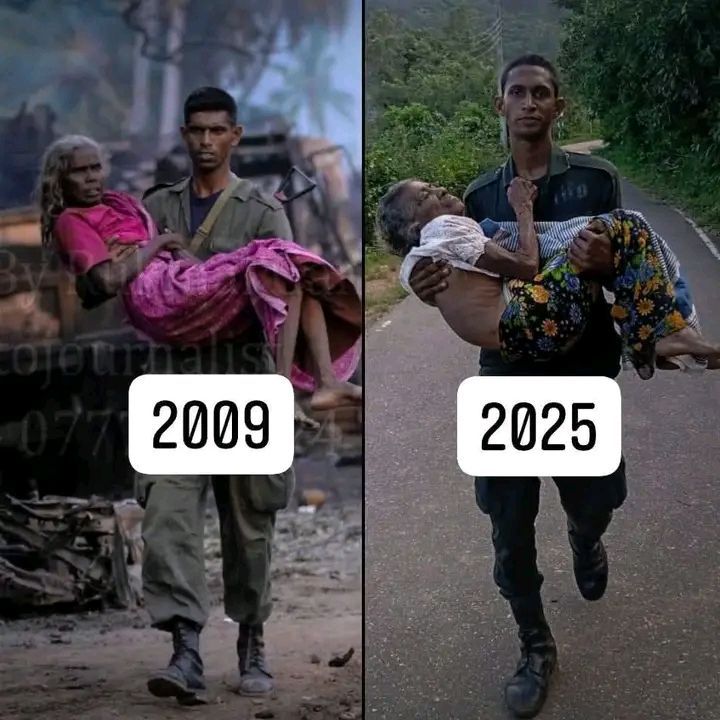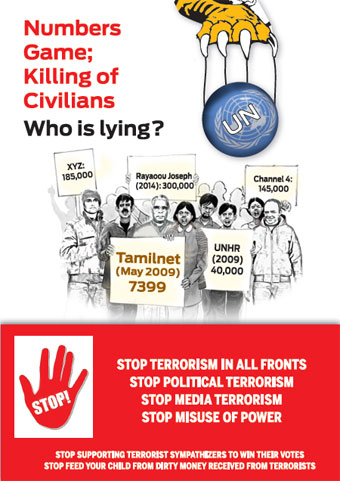Security: In and out
Global security concerns have been dominating international news headlines in the recent past following the advent of Donald Trump to the White House. His unorthodox style has, either by default or design, effectively turned the global order upside down. Meanwhile, Sri Lanka appears to be having its own share of concerns on the domestic security front, following a spate of incidents in the recent past – some of which are bringing back a sense of deja vu.
As on the international front where old security alliances appear to be crumbling post Trump’s second avatar, paving the way for the formation of new ones to the exclusion of the US, once the free world’s policeman now involuntarily being relegated to the bench in football terminology, there appear to be similar shifts on the domestic front with key security-related agencies undergoing major changes that have since attracted harsh criticism from Opposition ranks.
Opposition political parties have not only been cautioning the regime to go easy on key changes being made across the defence establishment, but have also been criticising some of the replacements, pointing to the critical need for maintaining professionalism by not deviating from the traditional methodology of seniority and merit. In justifying the criticism, these parties point to the dire consequences of similar haphazard change and the resultant security failings during the ‘Yahapalana’ era that ultimately culminated with the tragic Easter Sunday attacks.
Six years down the line, the Easter Sunday attacks remain a mystery with the masterminds still at large, even though three different heads of State have since assumed office on the singular promise of exposing those responsible. They include Gotabaya Rajapaksa, who assured swift dispensation of justice in the immediate aftermath of the attacks; Ranil Wickremesinghe, who promised a prompt Scotland Yard investigation; and the current leadership that will complete six months in office this month, which promised to expose the masterminds no sooner it took office. Additionally, numerous commissions of inquiry have painstakingly laboured and produced voluminous reports at great expense, that are seemingly gathering dust.
With the nation having been serially let down for six years, a ray of hope seemed to emerge from the unlikeliest of sources last Thursday (6). Having paid a courtesy call on the Chief Prelates of the Asgiri and Malwathu Temples and obtained their blessings, outspoken monk and Bodu Bala Sena General Secretary Ven. Galagoda Aththe Gnanasara Thera had a startling revelation to make when the media mobbed him outside the temples. The monk, who is no stranger to controversy and having recently been incarcerated for having caused disharmony, revealed that he knew who actually masterminded Sri Lanka’s single biggest coordinated terror attack that claimed 270 lives and maimed hundreds more.
Providing further details, the monk claimed that he would inform the media as to who was responsible after first informing the President. He stated that he also knew the reason for the attacks as well as all other details pertaining to the individual concerned. Despite the monk’s comments receiving widespread media coverage, the Police apparently appear to be in no hurry to question the monk on what he claims to know, which if true will make the cops’ job that much easier, having already toiled for six years with nothing much to show by way of results.
Meanwhile, in the much-discussed interview of former President Wickremesinghe by Al Jazeera journalist Mehdi Hasan last week, Wickremesinghe was asked for his opinion on the Presidential Commission of Inquiry report which held the then President and him, as Prime Minister at the time, responsible for dereliction of duty which ultimately led to the Easter Sunday terror attacks. Wickremesinghe’s response was that the apex court had held otherwise. When Hasan asked as to why no action had been taken on the matter while he was President, all that Wickremesinghe could do was bluster, much to the amusement of the audience.
Be that as it may, what is certainly cause for concern and bringing back a tangible sense of apprehension is the news in the recent past of an extremist outfit raising its head once again in the east. In fact, Ven. Gnanasara alluded to it during his encounter with the media, claiming that there was a growing fear psychosis surrounding this matter and referring to the danger of not rooting out such elements at the initial stage given the tragic experience of the past.
In fact, during the debate on the Defence Ministry in the ongoing Budget 2025 debate last week, the Minister of Public Security himself referred to extremist elements allegedly attempting to raise their head in the east. It will be recalled that it was an outfit with similar extremist ideology that became a tool in the hands of the Easter Sunday attacks mastermind who is still walking free.
While the track record of the Police in the Easter Sunday attacks investigation leaves much to be desired, leading to serious credibility issues, the inability of the cops to even locate their own former boss, another controversial figure, Deshabandu Tennakoon, for nearly 10 days now following a court order has been deeply embarrassing. Meanwhile, questions continue to be raised on the professionalism of the Police in an environment where corrupt cops are being exposed and arrested almost on a daily basis. What takes the cake is the Police calling on the public to help locate the former IGP, who is wanted by court over the killing of a youth in Weligama on 31 December 2023.
While dirty cops with connections to the underworld have long been an open secret, it is only now that the extent of the problem is being revealed consequent to the ongoing underworld warfare that has claimed 17 lives so far this year. While the cops desperately need to get their house in order to restore some degree of public trust in the institution that operates on taxpayer funds, it is important that the regime walks the talk and ensures that the past practice of shielding corrupt cops through political patronage is discontinued.
However, that should not mean that the regime takes things into its own hands in managing law enforcement as well as the nation’s security apparatus. In fact, questions have been raised both in Parliament as well as elsewhere on some of the recent appointments in the public security domain, where allegations are rife of cherry-picked individuals being parachuted to key positions. In fact, former Member of Parliament (MP) and Pivithuru Hela Urumaya Leader Udaya Gammanpila claimed last week that national security was being compromised through alleged politicisation of intelligence agencies.
The former MP alleged that a similar exercise in 2015 under the then ‘Yahapalana’ regime led to the weakening of intelligence gathering that ultimately paved the way for the Easter Sunday terror attacks. The MP has a point, for it was the Indian intel agencies that consistently warned about the attacks almost two weeks in advance and yet no measures were taken to prevent it.
Gammanpila alleged that a junior officer with a blemished record had been appointed as the Director of Intelligence while 13 other officers heading various divisions had also been replaced. He stated that the former Director had been put in cold storage without any specific duties while one of the most senior and trained experts had been seconded to the military band. Gammanpila further alleged that the new head of intelligence had no experience in the field, having previously served in the Mechanical Engineer Corps.
Sri Lanka’s bane for the longest time has been that whenever governments change, it appoints those it perceives as its loyalists to key positions including the Police and law enforcement. The appointees thereafter genuflect before their appointers in order to display their loyalties while professionalism takes a back seat. It was the expectation of most that this despicable practice would end with the advent of the new regime, which in fact promised professionalism at all levels beginning with Parliament itself, but reality seems to be otherwise.
If, as Gammanpila has alleged, national security is being compromised once again at the altar of political expediency in the backdrop of new threats emerging in the east and elsewhere, with even those fighting wars elsewhere on the planet taking refuge here, one can only echo his words that there is no point in looking for masterminds after an event.
18 Viewers








